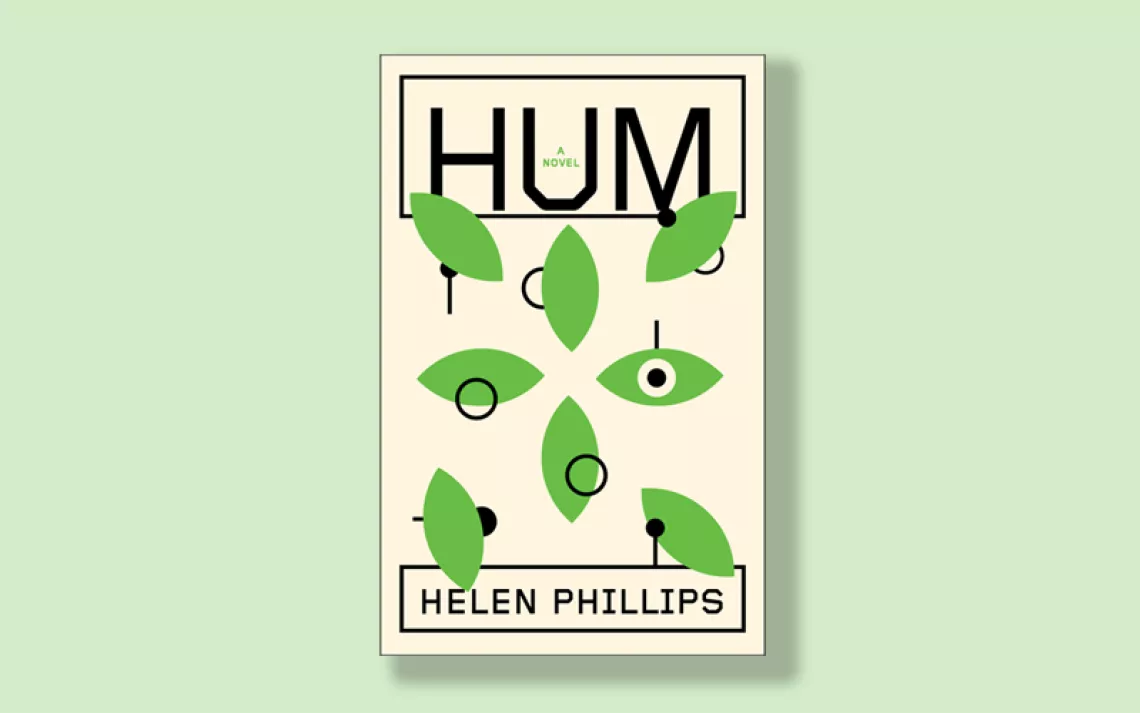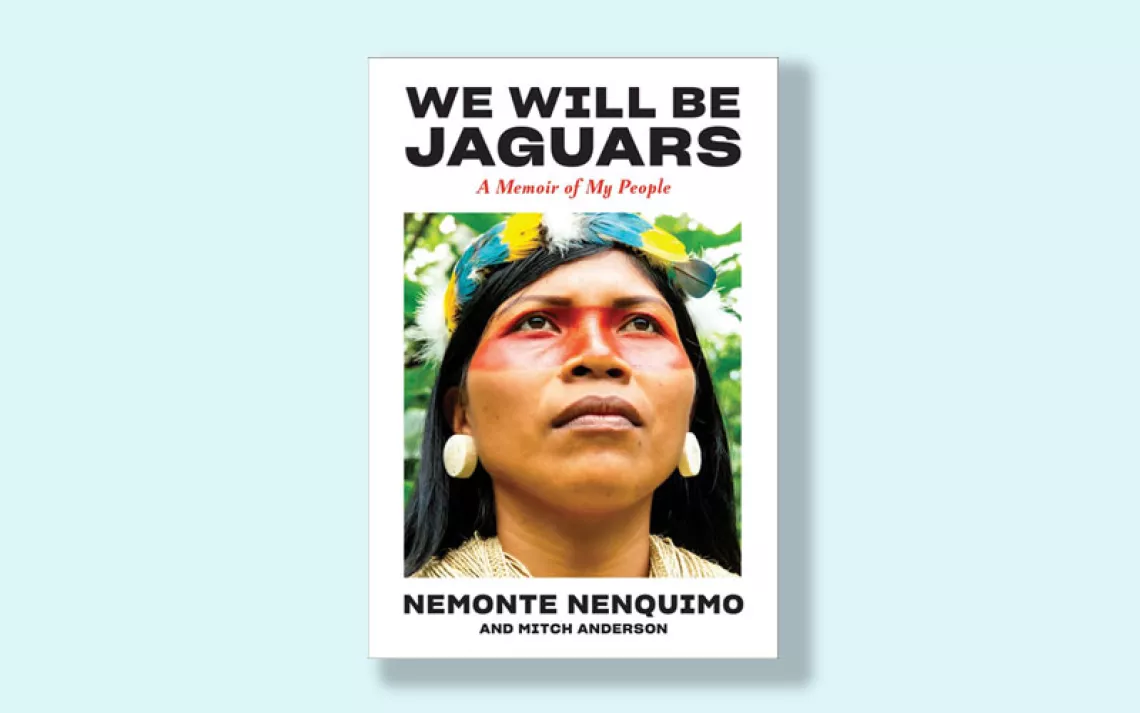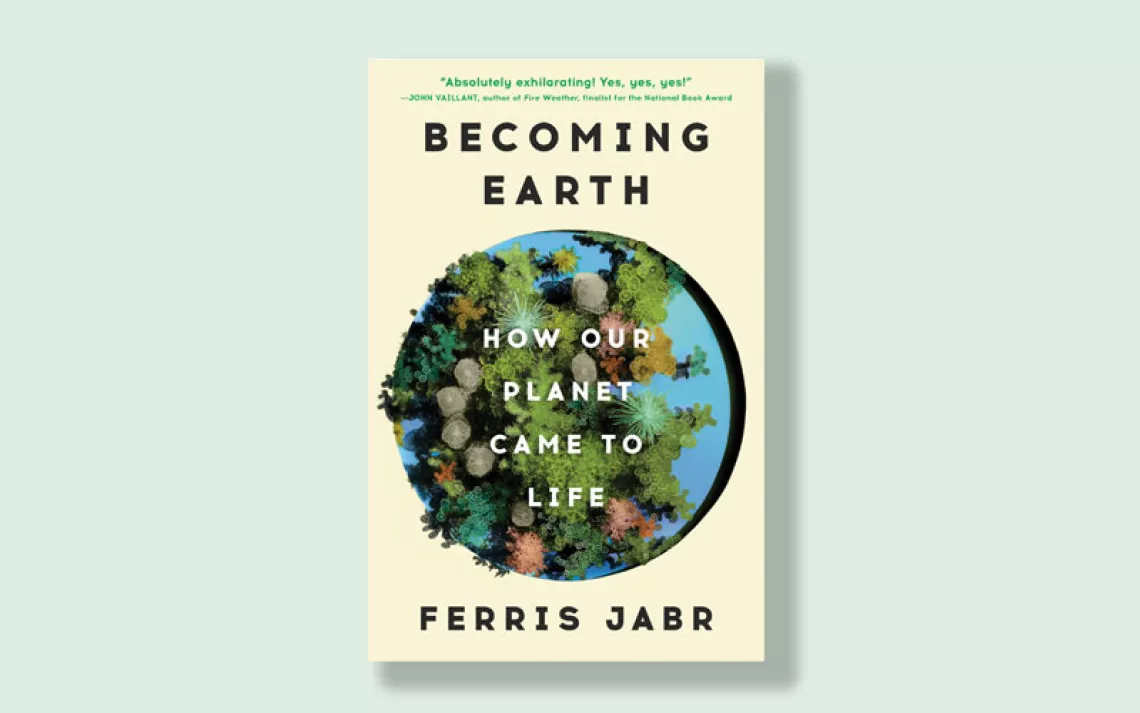Sci-Fi and Fantasy Authors: Our Anthropocene Guides
Master world-builders reveal how they’re reckoning with the Age of Humans
Can humankind ever hope to re-create nature? Ian Malcolm, Jurassic Park’s ornery mathematician, didn’t think so. “What we call nature is in fact a complex system of far greater subtlety than we are willing to accept,” he states in an early chapter of Michael Crichton’s sci-fi classic. “We make a simplified image of nature, and then we botch it up.”
The character (famously portrayed by Jeff Goldblum in the movie) eventually succumbs to tyrannosaur-related injuries, but not before he gets in a few more cracks at the ill-fated theme park and its architects. “You decide you’ll control nature, and from that moment on you’re in deep trouble, because you can’t do it,” Malcolm cautions. “You can make a boat, but you can’t make the ocean.”
He has a point, but that hasn’t stopped people from trying. From wildlife management in national parks to the lawn rewilding movement, people are attempting to take over for Mother Nature, or at least to give her a hand. According to some thinkers, we’ve entered the Anthropocene: a new chapter in Earth’s history in which humans are the major force shaping life and the environment, for better or worse.
Whether or not you believe Game of Thrones is an allegory for global warming, writers of fantasy and science fiction are certainly starting to grapple with the Anthropocene. It’s a natural fit. The genres have always been known for their great world-builders—authors who create other-worlds like J.R.R. Tolkien’s Middle Earth and Brandon Sanderson’s Cosmere from the ground up. In the Anthropocene, we’ve all become world-builders, charged with deciding how to create and maintain a livable planet for ourselves and for nature.
Sierra reached out to some master world-builders to find out what the process taught them about the “Age of Humans,” and how speculative fiction can help us imagine and prepare for what lies ahead.
To what extent are we a part of nature?
Fantasy author Robin Hobb grew up in Alaska, a place of ancient wonder that is home to some of North America’s richest wilderness. “On Kodiak Island,” she says, “moss grows on top of the ashfall on the branches of the old trees from a volcanic eruption many years ago.” Her childhood home was “close enough to the ocean that when a storm hit the cliffs, our trailer house would shake with it.” A meeting place for the forces of nature, it was fertile ground for a young writer. “How can any storyteller not be affected by things like that?”
Hobb’s worlds, such as the Realm of the Elderlings, are rife with high mountains and deep forests. They’re populated with strange wildlife, like dragons that grow from eggs into limbless serpents and pass through a pupal “cocoon” stage, much like a moth or butterfly.
While the natural world in Hobb’s work reflects our own, so, unfortunately, does the way humans treat it. In the Soldier Son trilogy, the kingdom of Gernia is expanding its borders, cutting new trade routes through ancient forests. Iron is Gernia’s weapon against the forces of magic and nature, as well as the indigenous Speck people of the forest. Technology and military force separate “civilization” from the untamed “wild.”
But for Hobb, that pursuit is ultimately futile. “As creatures, we have devoted more effort to separating ourselves from the environment than any other animal I can think of,” she says. “But no matter how separate we may try to be, nature is always going to assert itself.” Case in point: the COVID-19 pandemic. As humans chop through tropical rainforests and hunt wild animals for food, new viruses and other diseases jump from nature to humans. It’s likely that the novel coronavirus was one of them.
Hobb tends a garden and raises chickens on her 14 acres of property in Washington State. In recent years, record heat waves and drought have brought the climate crisis to her doorstep, killing her crops and animals. In the Anthropocene, no one can escape the influence of humans, but everyone can make a difference. “I think all any of us can do is try to take care of whatever tiny part of the natural world is entrusted to us to steward.”
Are we humans really in charge?
In the long, dark eons before the dawn of man, our early ancestors were mostly tiny and nocturnal, scurrying about the feet of the dinosaurs and trying not to get trampled. But one day, as the legend goes, an enormous rock from beyond the skies crashed to Earth and brought down the “terrible lizards.” From the ashes emerged scrawny, furry survivors, and so began the age of mammals.
But how long can our hegemony last? In the Antasy trilogy, fantasy scribe Clark Thomas Carlton imagines the roles reversed once again after another asteroid impact makes insects the dominant lifeforms on Earth. Humans evolve as millennia pass, growing smaller until we’re something more like parasites to our chitinous overlords. Our trademark human ingenuity still shines through, though, as we harness the giant insects for our own purposes—like using them as vehicles of war.
Like Robin Hobb, Carlton found his muse at a young age. “Insects were like little aliens to me,” he says. As a child, he made an ant farm with a glass jar and some bacon grease, but that first colony perished. After that, he decided to let the bugs build their own home and sat back and watched the little aliens at work. It wasn’t long until they went to war. “I took my magnifying glass and watched them as they tore each other into pieces. They were snipping each other, and some of them stretched their enemies until their legs were yanked out or their heads were pulled off.”
Humans have the same innate tendency toward territorialism and violence, says Carlton. But unlike ants, we can also be generous and compassionate, and with this comes some responsibility. “We are the only species, so far, with a capacity to be guardians of our planet, but we are also the species that is the greatest threat to life as we know it.” This includes ants and other insects, whose populations are declining worldwide due to pesticides, land development, and global warming.
Reversing these trends may mean going against our nature. “The lust for money and status is unfortunately a more powerful drive in human beings than the desire for a diverse, beautiful world that is livable and pleasurable for all,” says Carlton. “Those of us who want to be in balance with nature have to fight as hard as those who want to exploit the planet for their own greedy motives.”
And if we don’t make the right choices, we run the risk of forfeiting our hard-won position as rulers of the planet. “We may be paving the way for ants and insects to dominate again.”
Does nature exist for our benefit?
Becky Chambers has made a career out of biological thought experiments. Her science fiction novels are populated by what-ifs—creatures that might just exist if life had played out differently. But for all her imagination, Chambers admits, Mother Nature’s got her beat. “There's nothing I can make up that is as fantastic and wonderful as the infinite diversity that we have here on our own planet,” she says. To be fair, evolution has a head start of several billion years.
In Chambers’s novella To Be Taught, If Fortunate, a group of astronauts fly a rocket into deep space to conduct research on alien planets, where life is far from familiar. On one planet, the evolution of the skeleton took a very different path, leaving creatures with one, three, or seven pairs of limbs instead of the usual two. The crew goes to great lengths to avoid disturbing the alien environment, taking painstaking measures to keep bacteria contained, and even modifying their own bodies using hormones. The idea is to change the traveler to suit the destination, rather than the other way around: “somaforming” instead of “terraforming.”
The astronauts approach these pristine wild places (and their inhabitants) like they might approach America’s national parks. These places deserve to be studied and preserved rather than exploited, says Chambers. “To me, there is infinitely more value in understanding our context, our place, as best we can than in finding yet another thing to dig up.” Her latest novel, A Psalm for the Wild-Built, takes place on a planet that has enacted a Half-Earth policy, the kind famously proposed by biologist E.O. Wilson. Wilson and others have argued that leaving large portions of land and sea undeveloped and unfarmed would protect as much as 85 percent of species on Earth.
Yet, inevitably, disruption happens. Humans move, and everywhere we step, something gets hurt. In Chambers’s novella To Be Taught, If Fortunate, the spaceship becomes stuck in a mass of ocean-dwelling suction-feeders, and the astronauts make the hard choice to free themselves with a rocket boost, obliterating the animals.
When it comes to humans taking over for nature, Chambers falls on the Ian Malcolm end of the spectrum. “I think we do have this unfortunate tendency to say, ‘Aha! We figured out this one thing, and therefore we understand the entire package,’” she says. Scientific exploration is crucial for understanding how the world works, she says, but the more we look, the more complex it gets. Perhaps the best we can do is be humble in our approach.
If anything, science is revealing the infinite ways in which humankind isn’t separate from—and certainly not above—nature. “The universe was not made for us, and evolution did not end with us,” says Chambers, “We are one branch of many.”
 The Magazine of The Sierra Club
The Magazine of The Sierra Club




